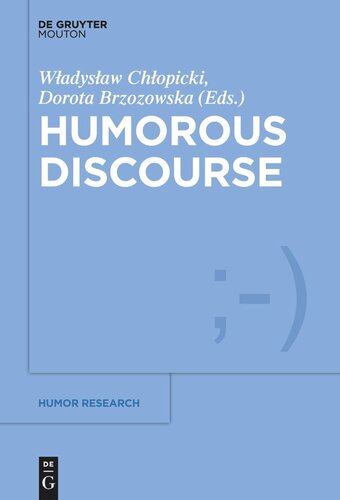

Most ebook files are in PDF format, so you can easily read them using various software such as Foxit Reader or directly on the Google Chrome browser.
Some ebook files are released by publishers in other formats such as .awz, .mobi, .epub, .fb2, etc. You may need to install specific software to read these formats on mobile/PC, such as Calibre.
Please read the tutorial at this link: https://ebookbell.com/faq
We offer FREE conversion to the popular formats you request; however, this may take some time. Therefore, right after payment, please email us, and we will try to provide the service as quickly as possible.
For some exceptional file formats or broken links (if any), please refrain from opening any disputes. Instead, email us first, and we will try to assist within a maximum of 6 hours.
EbookBell Team

4.1
40 reviewsThis book attempts to discuss selected but thorny issues of humor research that form the major stumbling blocks as well as challenges in humor studies at large and thus merit insightful discussion. Any discourse is action, so the text-creation process is always set in a non-verbal context, built of a social and communicative situation, and against the background of relevant culture. On the other hand, humor scholars claim that humorous discourse has its special, essential features that distinguish it from other discourses. The pragmatic solution to the issue of potential circularity of humor defined in terms of discourse and discourse in terms of humor seems only feasible, and thus there is a need to discuss the structure and mechanisms of humorous texts and humorous performances. The chapters in the present volume, contributed by leading scholars in the field of humor studies, address the issues from various theoretical perspectives, from contextual semantics through General Theory of Verbal Humor, cognitive linguistics, discourse studies, sociolinguistics, to Ontological Semantic Theory of Humor, providing an excellent overview of the field to novices and experts alike.